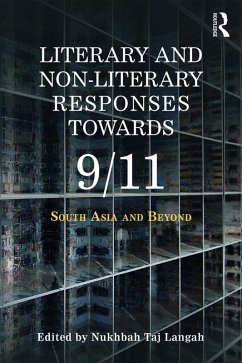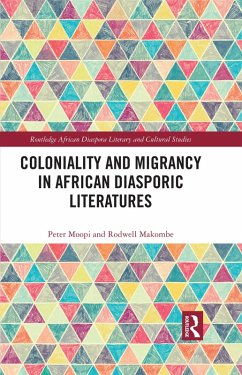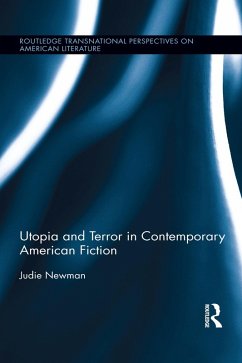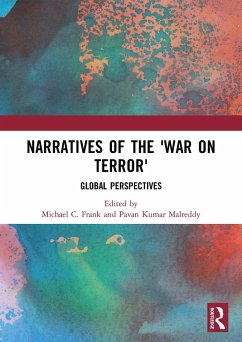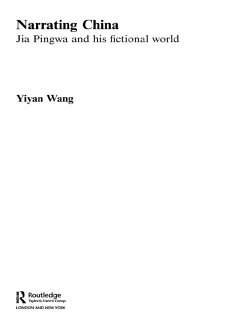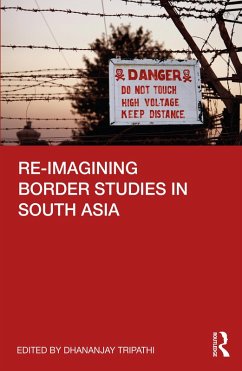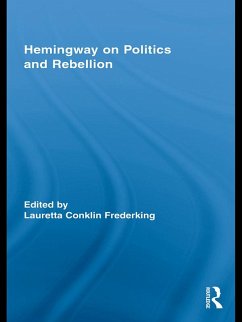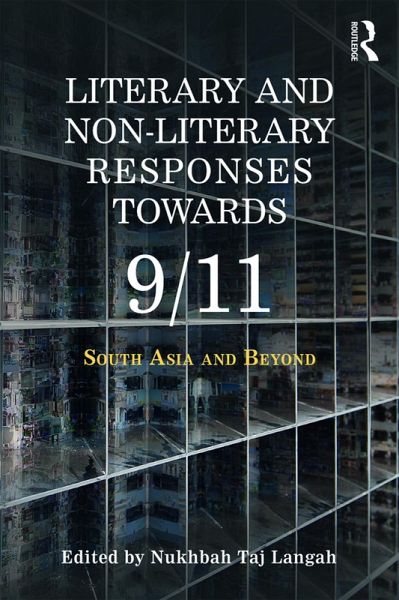
Literary and Non-literary Responses Towards 9/11 (eBook, ePUB)
South Asia and Beyond
Redaktion: Langah, Nukhbah Taj
Versandkostenfrei!
Sofort per Download lieferbar
38,95 €
inkl. MwSt.
Weitere Ausgaben:

PAYBACK Punkte
19 °P sammeln!
This book presents a range of analytical responses towards 9/11 through a critical review of literary, non-literary and cultural representations. The contributors examine the ways in which this event has shaped and complicated the relationship between various national and religious identities in contemporary world history. Unlike earlier studies on the topic, this work reconciles both eclectic and pragmatic approaches by analyzing the stereotypes of nationhood and identities while also questioning theoretical concepts in the context of the latest political developments.The chapters focus on di...
This book presents a range of analytical responses towards 9/11 through a critical review of literary, non-literary and cultural representations. The contributors examine the ways in which this event has shaped and complicated the relationship between various national and religious identities in contemporary world history. Unlike earlier studies on the topic, this work reconciles both eclectic and pragmatic approaches by analyzing the stereotypes of nationhood and identities while also questioning theoretical concepts in the context of the latest political developments.
The chapters focus on discourses, themes, imagery and symbolism from across fiction and non-fiction, films, art, music, and political, literary and artistic movements. The volume addresses complexities arising within different local contexts (e.g., Hunza and state development); surveys broader frameworks in South Asia (representations of Muslims in Bollywood films); and gauges international impact (U.S. drone attacks in Islamic countries; treatment meted out to Muslims in Europe). It also connects these with relevant theories (e.g., Orientalism) and policy perspectives (e.g., Patriotic Act). The authors further discuss the consequences for minorities and marginalization, cultural relativism vs. ethnocentrism, the clash of civilizations, fundamentalism, Islamization and post-9/11 'Islamophobia'.
This book will be useful to scholars and researchers of South Asian literature, Islamic studies, literary criticism, political sociology, anthropology and cultural studies, those in the media and the general reader.
The chapters focus on discourses, themes, imagery and symbolism from across fiction and non-fiction, films, art, music, and political, literary and artistic movements. The volume addresses complexities arising within different local contexts (e.g., Hunza and state development); surveys broader frameworks in South Asia (representations of Muslims in Bollywood films); and gauges international impact (U.S. drone attacks in Islamic countries; treatment meted out to Muslims in Europe). It also connects these with relevant theories (e.g., Orientalism) and policy perspectives (e.g., Patriotic Act). The authors further discuss the consequences for minorities and marginalization, cultural relativism vs. ethnocentrism, the clash of civilizations, fundamentalism, Islamization and post-9/11 'Islamophobia'.
This book will be useful to scholars and researchers of South Asian literature, Islamic studies, literary criticism, political sociology, anthropology and cultural studies, those in the media and the general reader.
Dieser Download kann aus rechtlichen Gründen nur mit Rechnungsadresse in A, B, BG, CY, CZ, D, DK, EW, E, FIN, F, GR, HR, H, IRL, I, LT, L, LR, M, NL, PL, P, R, S, SLO, SK ausgeliefert werden.




